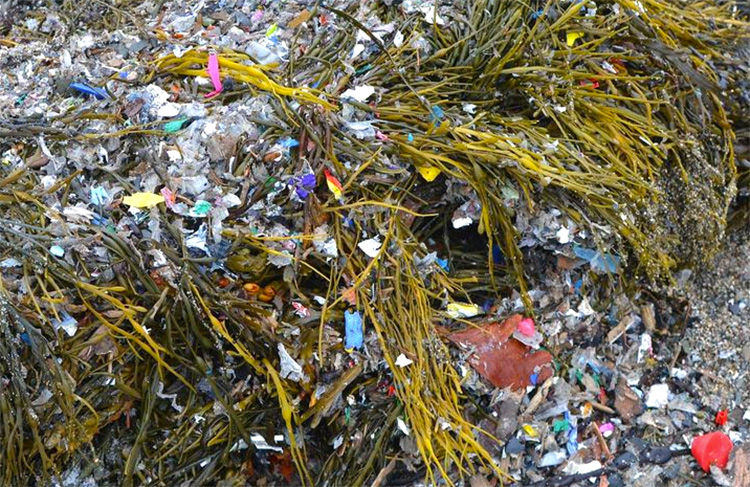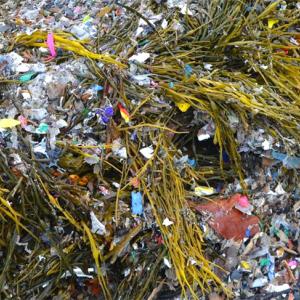Islesboro Land Trust urges Maine DEP to increase penalty for Penobscot Bay plastics spill
PENOBSCOT BAY — On December 2, 2020, two large bales of compacted trash from Ireland dropped into Penobscot Bay waters while being unloaded from a ocean freighter at Mack Point in Searsport, dispersing fragments of plastic on the tide and currents. The public outcry was substantial as the news spread globally, and the Maine Dept. of Environmental Protection vowed it would launch an investigation.
Employees of Sprague Operating Resources LLC, the privately owned company that operates the facility at Mack Point, were operating the crane on the M/V Sider London to offload bales of solid recovered fuel (SRF) destined for incineration at the Penobscot Energy Recovery Company waste to energy plant in Orrington.
The bales weighed approximately 2,500 pounds combined, and consisted of approximately 80% shredded plastic, 11% paper, 8% fabric and 1% other non-putrescible materials.
They were wrapped in a thin plastic film for transit. During transfer from the vessel to the pier, the lifting straps on two of the bales slipped, and the bales dropped. One bale broke open after hitting the pier infrastructure, fell into the water, and sank immediately. The other bale fell directly into the water between the pier and the ship, remained intact, and slowly sank in 5-10 minutes. During that time, it was carried by wind and current north around the bow of the ship and sank out of sight north and east of the ship.
Nine months later, and the Maine Dept. of Environmental Protection proposed a consent agreement that imposes a $17,800 fine on Sprague, and the Maine Board of Environmental Protection is due to possibly consider the agreement at its November meeting.
But the Islesboro Islands Trust wants a far heftier fine imposed on Sprague for violating Maine’s pollution control law, 38 M.R.S § 413(1).
The land trust submitted testimony to the DEP, saying:
(1) shredded plastic waste is a petroleum product containing harmful, persistent chemicals that becomes increasingly bioavailable in the environment;
(2) an appropriate $340,000 penalty for violating 38 M.R.S. § 412(1) for at least 34 days is supported by comparable levels of penalty found in Maine law and in line with at least one other petroleum-related penalty imposed by DEP; and
(3) Sprague’s Terminal Operations Manual (TOM), Safety Inspection Form and Dry Cargo Risk Assessment Form must explicitly acknowledge that shredded plastic waste is (a) hazardous, (b) cannot in all likelihood ever be fully retrieved once disposed into Maine waters, and (c) represents an unacceptable level of risk when transported wrapped in breakable film rather than in sealed containers.
Oil and oil products comprise the basic ingredient in making plastic and plastics contain chemicals severely harmful to humans and the environment.
”A penalty of $340,000 aligns with the $310,225 Pan American Railways fine for illegal discharges of oil into the Kennebec River. IIT also recommended that $25,000 of this total be allocated as a supplemental environmental project to Friends of Sears Island in light of their immediate and substantial assistance in managing cleanup along the Sears Island shore and the likelihood of their eyes-on-the-ground should another spill occur,” wrote the land trust.
“Sprague Operating Resources must be sanctioned for spilling shredded plastic waste into Penobscot Bay and for not immediately reporting the plastics discharge; protocols and penalties must be imposed that discourage importing shredded plastic trash in this form and that ensure thorough, rapid and effective clean-up of any such waste spill in future,” the land trust said.
























